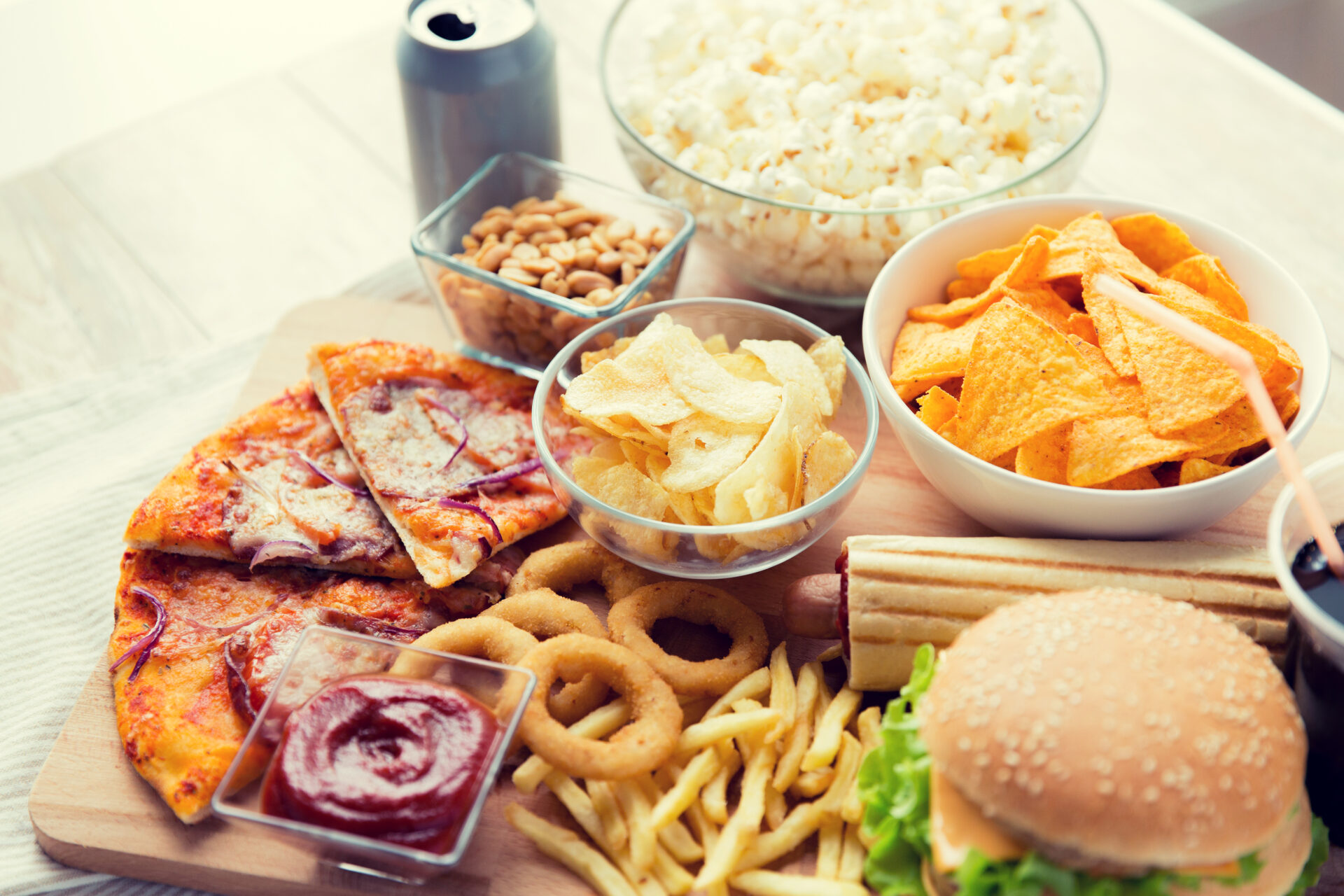News

What are ultra processed foods?
Ultra processed food (UPF) is the term used to describe foods where multiple ingredients have been combined to produce foods such as crisps, biscuits, mass produced breads and cakes, sugary drinks, cereals, pizzas, sausages, and other processed meat products.
Foods are classified by the NOVA system which places foods into four categories, including ultra processed foods. We eat more ultra processed foods than ever before – some estimates say that 60% of US adults and 70% of childrens’ diets are made up of UPFs. The UK population is one of the highest consumers of ultra processed foods in Europe.
What UPF ingredients are concerning?
UPFs contain high levels of saturated fat, salts, and sugar. But the focus has switched to understanding more about the potential health effects of the chemicals used in the production of ultra processed foods. These include additives such as preservatives, flavour, colour and texture enhancers, emulsifiers, and other ingredients that are not usually used in home cooking. You’ll see these listed as additives on food labels and packaging.
Do ultra processed foods present a health risk?
Ultra processed foods have been associated with obesity for a long time, but the most recent research is investigating links between UPFs and health of the gut biome, which is turn is being linked to heart disease and cancer.
A large UK based study used UK Biobank records of over 200,000 people, whose health was monitored over a 10-year period. The study found that consumption of UPFs was associated with a higher cancer risk, especially brain and ovarian cancers. It also increased the risk of death from ovarian and breast cancers.
The extent that ultra processed foods are harmful to our health, and the effects of combined effects of the ingredients isn’t fully understood – it isn’t clear enough to draw conclusions yet. But the evidence does point towards a serious risk to our health if we consume a high proportion of ultra processed foods in our diet.
Can you avoid ultra processed food?
For people with busy lives, it can be quite difficult to avoid them entirely, so it’s perhaps more realistic to minimise how many ultra processed foods you include in your diet. Here are a few ideas to consider if you have any concerns.
- Follow the guidance provided by the British Heart Foundation on ultra processed foods.
- Familiarise yourself with additive ingredients listed on food labelling.
- Eat more food made at home using ingredients with less processing.
- Choose organic fruit, vegetables, meat, and dairy products.
- Avoid foods that appear on the PAN Dirty Dozen list.
More information
Take a deeper dive with the BBC’s Panorama documentary about ultra processed foods
Learn more about flavour enhancers from the Food Additives & Ingredients Association
Read more about emulsifiers (commonly used to bind ingredients together) at the European Food Council






